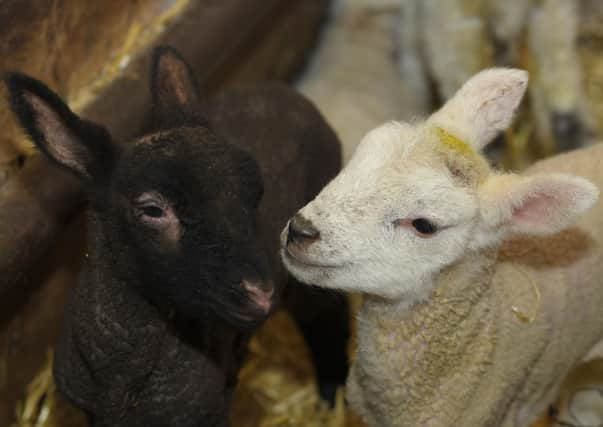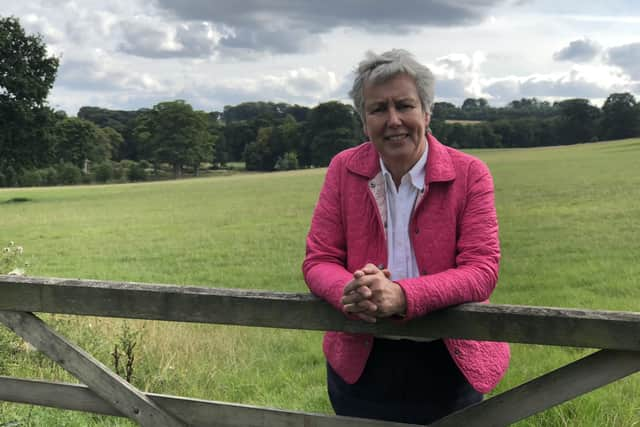Five ways to assist farming, food and tourism sectors – Dorothy Fairburn


The CLA has been pushing both Defra – and the Treasury – to make emergency measures available to businesses in rural areas so they have the ability to manage farms and rural businesses in the coming months. This is vital to ensure continued food supply and security.
Labour issues (seasonal and key worker status): As a nation, we have never been faced with a challenge quite like this. Restrictions on travel and illness means that the agricultural sector could face a shortage of up to 80,000 seasonal labour workers.


Advertisement
Hide AdAdvertisement
Hide AdTime is critical as the picking of soft fruit is due to begin in April, vegetable growers are already beginning to crop and the lambing season has reached its peak.
Following calls from the CLA, the Government announced that workers in agriculture, food processing, distribution, sale and delivery are to be included as ‘‘key workers’’ and offered emergency childcare provision.
In addition, we called for Government assistance to help source workers and advertise positions to fill in the projected shortfall. At the time of going to press, well in excess of 10,000 applications had been received.
Supply chains: If anything, the current pandemic has magnified the importance and complexity of producing food – perhaps referring to it as ‘farm to fork’ is a gross simplification, and hides the fact of all the inputs required, outputs and supply chains that ensure food on the nation’s tables.


Advertisement
Hide AdAdvertisement
Hide AdConsider for instance the potential disruptions to input supply chains – the delivery of fertilisers, pesticides, animal feed and veterinary products, and fuel, coupled with the challenges with moving crops and livestock off the farm.
A significant problem is drivers becoming ill. Agricultural deliveries often have specialist vehicles or require licences, so the drivers are not easy to replace. There could also be problems related to imports in some cases.
The CLA has successfully lobbied Defra for extending drivers’ hours to ensure that the agri-food supply chain runs as smoothly as possible. This temporary relaxation was granted to such drivers in the UK as well as EU.
Business planning: In the face of these challenges, the CLA is encouraging all farmers and rural businesses to actively plan for all eventualities, and it is hoped that the majority are already some way along this process. Areas such as cash flow, logistics, insurance, contracts and procedures to pay and protect employees are just a few areas where business owners can review the way they do things.
Advertisement
Hide AdAdvertisement
Hide AdTourism and diversification: Social distancing means that all tourism attractions and facilities, ranging from bed and breakfasts to farm shops, through to campsites and caravan parks, are closed for the interim. In turn, this will have a devastating impact on cash flow, jobs and the wider tourism offering across Yorkshire.
The CLA receives daily updates from the Government and VisitBritain and will continue to liaise with the Tourism Alliance to ensure that the sector’s concerns are taken on board and acted upon.
Health and wellbeing: Running a farming business can be demanding at the best of times – and is to a large extent a self-isolating business. Additional health and financial worries caused by coronavirus could make it an even more stressful time, and it’s important for those working in this sector not to suffer in silence.
It’s good to talk, and there are some useful farming charities such as the Farming Community Network and Royal Agricultural Benevolent Institution that can be called upon in time of need.
Advertisement
Hide AdAdvertisement
Hide AdLast week I also expressed my sadness at the cancellation of the Great Yorkshire Show. However, the rural sector is exceptionally resilient, having faced more than its share of adversity in the past. I have every confidence the Great Yorkshire Show will bounce back next year and we can’t wait to be part of it once again.
We recognise that every aspect and business sector will feel the impacts, but it is imperative that the agricultural sector is protected for the sake of a steady and sustainable food supply. It is the one economic activity that ensures the nation is fed.
The CLA is continuously monitoring government announcements of business support and are lobbying hard to ensure rural businesses get the support they need.
Dorothy Fairburn is the director of CLA North – see www.cla.org.uk/coronavirus for updates.
